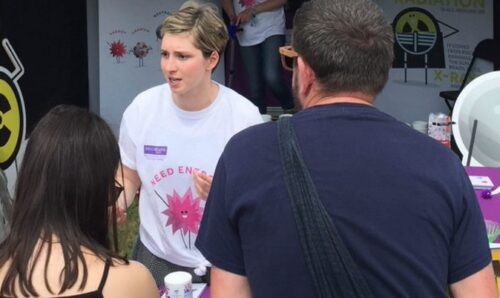A GDF requires a community-government partnership
Waste and clean-up 17 December 2015
Nuclear power production is set to grow and grow. The International Atomic Energy Agency has continuously predicted expansions to our international nuclear capacity, recently estimating that it could increase up to 68% by 2030. This will unavoidably increase the waste produced, complicating further the onerous task of nuclear waste storage. The UK long-term strategy for managing this waste is via geological storage (the storing of nuclear waste material underground in geologically suitable locations), which is currently considered the best method. Suitable locations for storage need to be found and the facilities need to be built and managed in a safe and secure way. Locating suitable areas (surveys have said that 30% of the UK, excluding Scotland, could suitably store nuclear waste), and in particular, convincing local communities and councils to agree seems to be the biggest hurdle so far preventing waste storage.
Public perception of nuclear waste is hindering its safe storage. In 2013 Cumbria’s council vetoed government plans to locate a suitable waste storage site in the area and recently, the government-owned Radioactive Waste Management agency admitted that there was a “nuclear dread” for people unfamiliar with nuclear waste. Greater consultation with local communities is required to change this. However, the recent vote to allow the government to force local communities to accept waste dumps undermines any collaboration; the Secretary of State for Energy can now choose suitable locations for waste storage and have the final say on their use. Instead of strong arming local communities to store our waste against their wishes, surely a greater share of knowledge is needed and a better partnership should be formed with the public to allow communities to be more familiar with the risks and necessities surrounding nuclear waste storage? Our biggest fears lie with the unknown; banishing the myths surrounding nuclear waste by intelligently engaging the public and clearly presenting the facts surrounding storage would allow us all to build towards a secure, mutually beneficial, and publically backed nuclear co-operation.
Osman Aden is a Chemistry graduate working as a Publish Editor within sustainable energy.




Leave a Reply